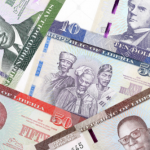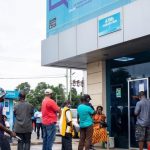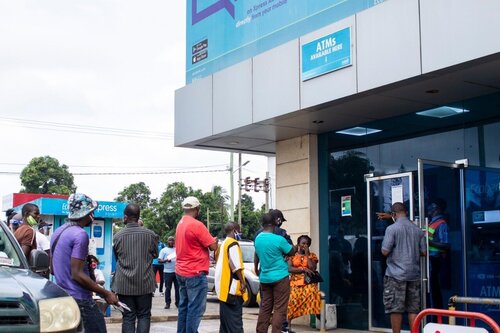
How a Cash-Strapped Banking System is Hampering Liberian Business Activities
January 9, 2024
Closed borders can be an opportunity: A farmers’ cooperative achieved record cocoa sales during Ebola
January 9, 2024Liberia’s banking system is challenged by liquidity and often low on cash. Small and medium businesses are often challenged by the limited availability of financing and, when it can be accessed, the unattractive terms and conditions on offer, such as short lending periods and high interest rates.
GROW launched our COVID-19 Business Advisory Series in May 2020. The following provides information for Liberian businesses managing worsening finance and liquidity issues.
COVID-19 has exacerbated finance and liquidity challenges for businesses
Macro Level
- Reduced capital inflows. As a result of the pandemic, African countries are experiencing delayed and reduced foreign direct investment (FDI) as partners from other continents redirect capital locally. Further, exports are also dropping owed to decreasing global demand for key export commodities like rubber and palm oil, resulting in a drop in forex inflow for Liberia. For example, Golden Veroleum Liberia, the largest oil palm concession-holder, laid off over 10% of its workforce in May due to falling global prices.
- Less global trade. Historic trading partners are doing less business across the continent because of the economic downturn. For instance, Firestone placed a hold on purchase of rubber from outside its own farm amidst the pandemic. Moreover, when the company recorded its first case of COVID-19, it locked down its facilities and suspended operations in some areas.
- Growth forecast in Sub-Saharan Africa between -2.1 and -5.1 in 2020, the worst ever recorded. The least diversified economies are expected to be the hardest hit – with reduced foreign financing flows, foreign aid, remittances, agricultural revenues, and capital flight.
Business Level
- Reduced household expenditure and consumption. Many businesses, especially SMEs, are under significant cost pressure and face potential closure and bankruptcy. As unemployment and nonworking rates increase while remittances fall, consumption is decreasing – this is bad for business.
- Negative effects of restrictions. Higher operational costs (transportation, staff costs from working remotely, scratch cards, etc.) coupled with increased price of goods and fewer sales result in reduced capital for other operations as well as low liquidity.
- Limited cash flow. Debtors may delay payments to companies or become insolvent leading to loss of income in the short and long term. Companies may also be unable to pay off debts to creditors; delayed payments mean higher interest rates, bankruptcy etc.
- Effects on diversified businesses. Business owners who use cash from one business function to subsidize another may, during these times, find that that previously-relied-upon income source has dried up. With decreases in revenue in one business stream, there is a decrease in available cash for another business stream to function, causing the entire portfolio of business functions to collapse.
Businesses in Liberia can adapt to manage changing financial circumstances
Plan ahead. COVID-19 is affecting the economy and business on a global scale, with ramifications for businesses locally.
- Forecast spending and revenues conservatively.
- Focus on increasing productivity and efficiency with the resources available currently.
- Build contingency plans to ensure the business can stay afloat in the medium-term.
Manage costs and cash.
- Focus on operations. More efficient operations by cutting costs or decreasing turnaround time means more cash available to businesses i.e. lower Cash Conversion Cycle time.
- Inventory Management: Focus on ensuring you have adequate inventory in a time of disruption and shortage. Maintain buffer stock but be careful – overstocking can adversely affect cash on hand, revamp safety stock procedures to optimize inventory.
- Reassess payables and receivables. Focus on getting money quickly from your receivables and extending payment time to your payables where possible. This will increase available cash.
Look for financing options.
- Discuss alternative plans with banks and lenders. Restructuring terms and finance options may be possible now, where they were not before. Lenders may offer a delay in payments, lower interest rates etc.
- Seek alternative sources of supply chain finance: Seek out trade finance providers or assess if suppliers can offer loans/credit.
Stay informed. Keep a pulse on the developments of the Central Bank for responses to ease economic impacts.
For more information regarding the guidance above, check out the following sources:
- The West Africa Trade and Investment Hub: Supporting Sourcing, Agricultural and Non-agricultural Exports and Agricultural Supply Chains affected by COVID-19 in West Africa – West Africa Trade & Investment Hub
- Tackling COVID-19 in Africa – McKinsey
- Six Charts Show How COVID-19 Is an Unprecedented Threat to Development in Sub-Saharan Africa – IMF
- For Sub-Saharan Africa, Coronavirus Crisis Calls for Policies for Greater Resilience – World Bank
- CBL Moves to Ease Economic Impact of COVID-19 – Central Bank of Liberia
- Covid-19: A Business Impact Series – KPMG
- COVID-19 Managing cash flow during a period of crisis – Deloitte
- Financial Sector Support Measures in Response to COVID-19 – World Bank
About GROW Liberia
GROW is an agri-business and investment advisory program that partners with businesses, investors, associations, and government agencies to accelerate inclusive economic returns within high growth industries in Liberia. GROW is supporting public and private partners and markets to respond to the COVID-19 emergency. Learn more about our research, advisory, and support here.
GROW Liberia © 2021 All rights reserved



